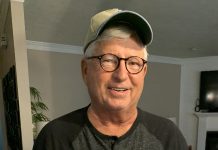All of that changed in May of this year when the U.S. Supreme Court held that the patent venue statute (28 USC 1400(b)) requires that, in most instances, an action for infringement be brought against an alleged corporate infringer “only in its State of incorporation.†TC Heartland LLC v. Kraft Foods Group Brands LLC, 137 S.Ct. 1514 (2017).
The decision was a major victory for startups and small companies who now no longer run the risk of being hauled into court in a distant forum simply because someone in that jurisdiction may have viewed their website or purchased their product. The case was also a huge blow to the restaurant and hotel industry in East Texas towns like Marshall and Tyler where litigants and lawyers frequently traveled for hearing before the District Courts, and the plethora of patent-holding companies that purchase patents for the purpose of squeezing quick settlements out of other companies and are “headquarted†in or “reside†in Marshall and Tyler.
Only a month after the landmark TC Heartland decision a Judge from the Eastern District of Texas issued a decision that arguably expanded the Supreme Court’s ruling, and, if adopted, may have stemmed the flow of patent cases out of the Eastern District. In that case, the District Court applied a four-factor test for determining whether the defendant had a “regular and established place of business†in the district. The District Court’s application of that four-factor test concluded that Cray did in fact have a “regular and established place of business†in the Eastern District of Texas based solely on the fact that two sales employees of Cray worked from their homes within the district.
That decision was appealed to the Federal Circuit, where, in September, the four-factor test of the Eastern District was struck down in favor of a narrower three-prong test for determining if venue is proper. Specifically, in In re Cray, the Federal Circuit found that:
“(1) there must be a physical place in the district;†(i.e. an actual business location of the defendant where business is conducted)
“(2) it must be a regular and established place of business;†(i.e. more than just sporadic or irregular business activity) AND
“(3) it must be the place of the defendant†(i.e. a place that the defendant corporation, not its employee, exercises control over).
Not surprisingly, after application of the three-prong test, the Federal Circuit found that the two employees working from their home for Cray did not meet the standard.
The Federal Circuit sent the case back to the Eastern District for a determination of the proper venue for transfer. Cray is a Washington corporation with its principal place of business located there. It also maintains facilities in Bloomington, Minnesota; Chippewa Falls, Wisconsin; Pleasanton and San Jose, California; and Austin and Houston, Texas. Interestingly, Cray requested transfer to Wisconsin (Chippewa Falls) and Raytheon is now requesting transfer to the Western District of Texas (Houston, Austin). Given that Cray admittedly has offices in both places and did not seek transfer to its home office in Washington, it will be interesting to see in which one of Cray’s “homes†the case ends up.
EDITORS FOOTNOTES: Martin IP Law Group is not a typical law firm.  Their practice focuses on Intellectual Property – Patents, Trademarks, Copyrights and Trade Secrets. They will help you build value in your business by protecting your ideas, inventions and identity, including:
- Identifying and assessing the value of intellectual property;
- Preparing and prosecuting US and International patent and trademark applications.
- Preparing freedom-to-operate opinions, validity/invalidity opinions and infringement/ non-infringement opinions.
- Conducting due diligence of third party IP portfolios for acquisition, litigation and/or design-around.
- Conducting negotiations and drafting agreements relating to assignment, licensing, and other transactions affecting intellectual property.
-  If you have any questions concerning Patents | Trademarks | Copyrights please contact Mr. Martin at 318 Main Street | Suite 503 | Evansville, IN 47708 ( 812.492.4478  | rick@ipsolutionslaw.com or |www.IPSolutionsLaw.com




